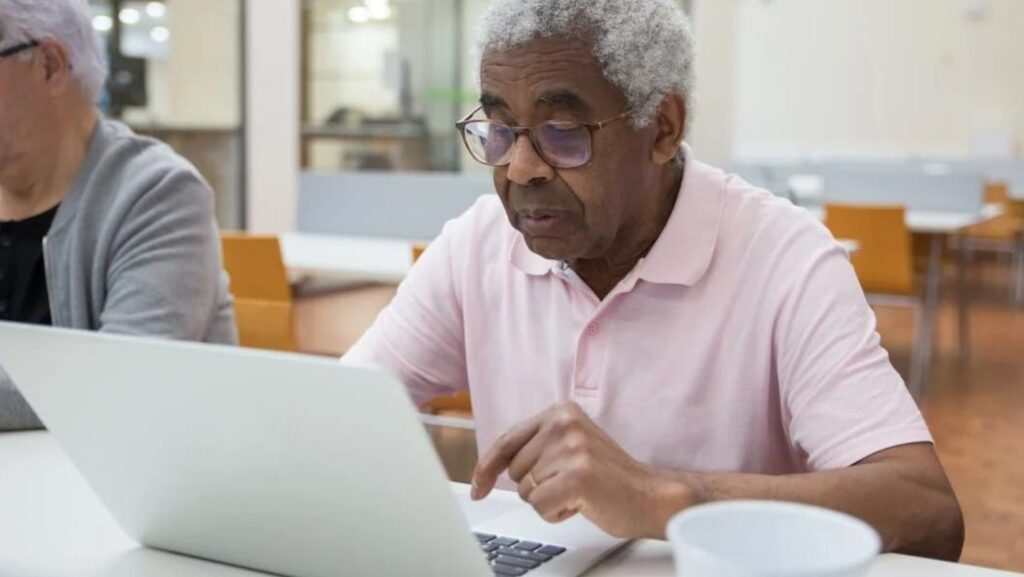Aging is a natural progression in life. The joints are stiffer. Standing up or bending down is harder. Remembering simple things such as birthdays is fuzzier.
Exercises targeting sedentary lifestyles can help slow down the aging process. And like your body needs motivation to keep moving, so too does your mind.
Cognitive decline in older adults refers to difficulty with thinking, memory and concentration. It can be scary at times, especially for those experiencing it.
According to the CDC, subjective cognitive decline (SCD) affects one in nine people. The occurrence among adults aged 65 years and older is 11.7%.
Mental health services for older adults, such as Mental Health America, can help in diagnosing serious mental illness. There’s also the Geriatric Mental Health Foundation, which provides valuable resources for older adults living with mental health conditions.
There could be other underlying health issues like diabetes or high blood pressure that contribute to the onset of cognitive decline. Before it becomes a real issue, you want to be proactive with preventative measures instead of causing undue emotional distress.
This article will discuss tips and suggestions to prevent cognitive decline in seniors.
Playing Mind Games
The internet offers a wealth of mental health resources for seniors, including brain-training games.
A study published in Translational Psychiatry found that playing video games can significantly improve cognitive abilities in patients with schizophrenia. The research gave fresh insight into how video game training enhanced attention and brain connectivity.
Video games are exceptional for mental exercise. They help with neuroplasticity, the brain’s ability to adapt to new experiences. If you’re not ready to enter the world of gaming just yet, below are more traditional games you can try.
Sudoku
The Japanese puzzle game is a favorite among young and old. Dr David Hunter, an assistant professor of neurology, says the game improves attention span and problem-solving skills.
Players enter numbers from 1-9 with no repeated numbers in each line, horizontally or vertically, in a 9×9 square. Sudoku can be played on paper or online.
Most seniors prefer the traditional paper version.
Crossword Puzzles
There’s nothing like a good ‘ol crossword puzzle. Easily accessible, you don’t need to access the web to do a crossword puzzle. According to Very Well Mind, the mental health exercise taps into verbal language, memory and analytical skills.

Neurologist Dr Elana Clar cited a study revealing that crossword puzzles delayed a decline in memory in patients with dementia by an average of 2.5 years.
She did, however, tell Parade Magazine that word games like crosswords were notable, but numeracy puzzles were better for supporting memory.
Chess
As Dr Clar suggested, chess in itself is a mental exercise. The intense concentration required to play chess aids problem-solving and stimulates the brain.
Kelvin Alston teaches chess to seniors at retirement centers around Perquimans and Chowan counties. Chess keeps the brain functioning for older adults, Alston told The Perquimans Weekly.
But there’s a deeper meaning to him teaching chess to seniors. Alston believes it stimulates social interaction and encourages friendly competition between the elderly.
Chess used in therapy dates as far back as 1937, Psychology Today reported. And, the game of strategy has been proven to be a preventative tool for cognitive decline in seniors.
Peak
Peak uses the latest research to develop evidence-based games that have been proven to boost cognitive skills.

Working exclusively from an app, it claims to improve memory, attention and language. Users start by completing an assessment and asking what they’d like to improve upon.
Thereafter, the app throws out game suggestions that should be played five times a week. Bear in mind that there is a premium cost for a monthly or annual subscription.
The Bottom Line
There’s much debate surrounding brain training games and puzzles. The truth is that experts aren’t exactly sure if they work.
Very Well Mind reported that researchers are uncertain if the improved cognitive skills translate to everyday life. But there’s no harm in utilizing cognitive training to stay mentally active.
Smartphone apps in particular have come under scrutiny. Dr Andrew Budson is the chief of cognitive and behavioral neurology at the VA Boston Healthcare System. He says studies on brain training apps don’t often follow best research practices.
In the same vein, he mentioned that some findings yielded positive results. Keeping that in mind, Dr Budson recommended that seniors using brain training programs view them as hobbies and not something critically important for the brain.
Instead, improve your overall mental health by following a healthy diet, getting rid of bad habits, and maintaining social ties.
Don’t forget, do things that bring you joy. Dance. Sing. Laugh. Be positive. Be grateful. And focus on the present.
